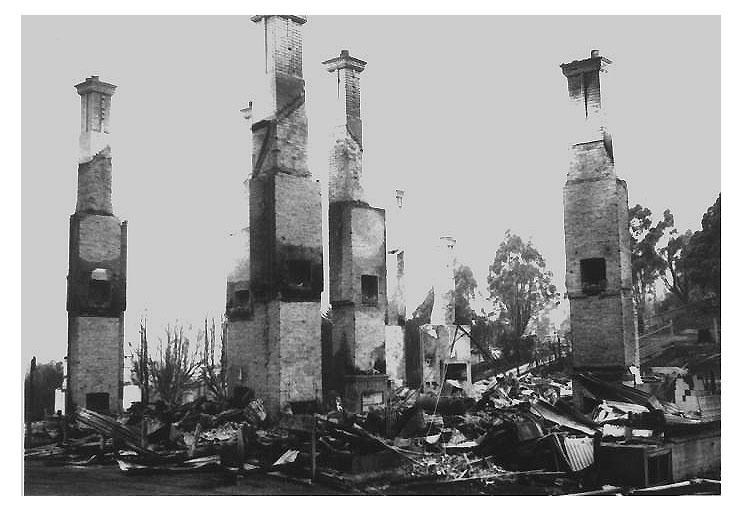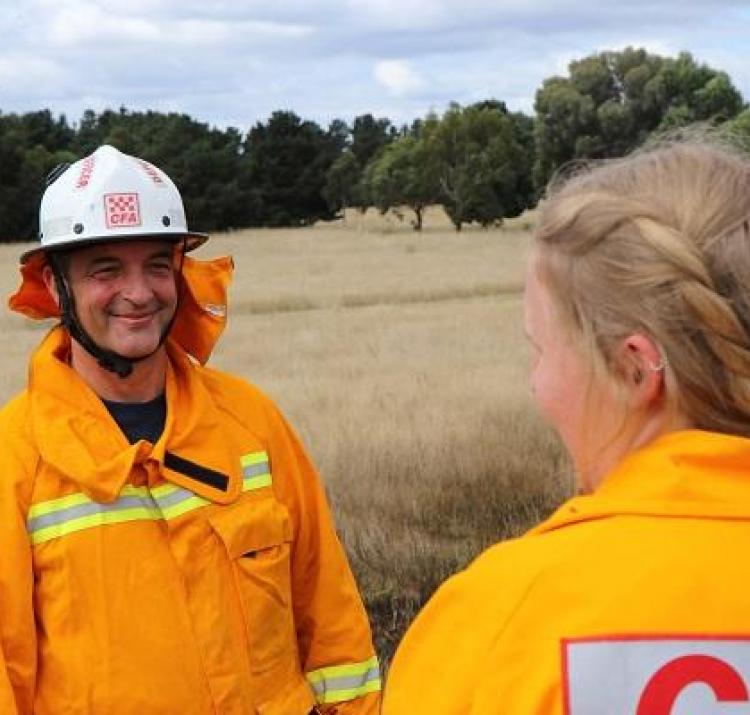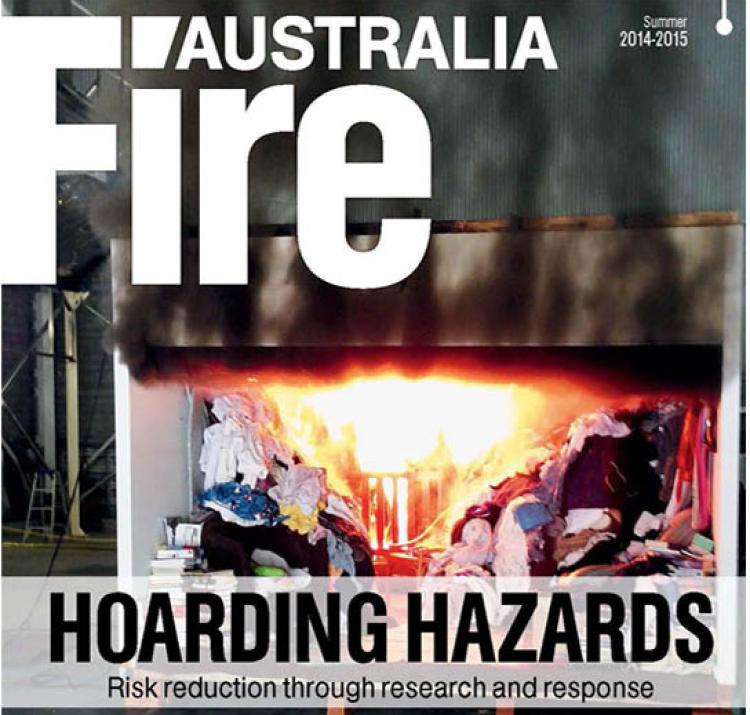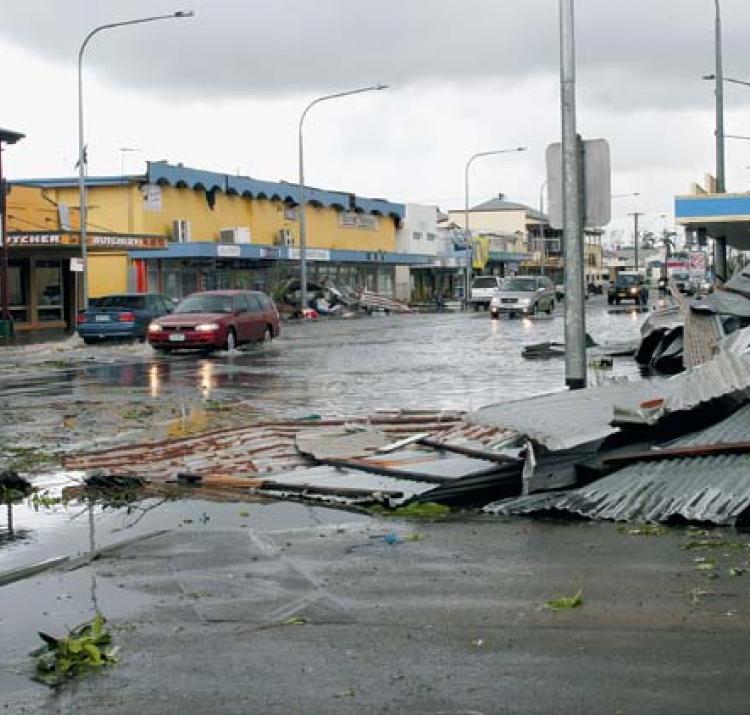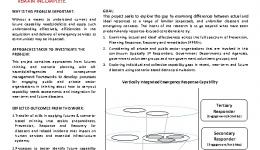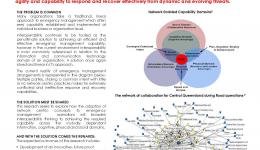This study examined the in-depth lessons from historical emergencies and disasters by engaging with state and federal response agencies, as well as those supporting response and recovery, and local government. The project examined options for defining agile and sustained skills sets across the full cycle of disaster management.
This study also enhanced planning mechanisms for the delivery of effective disaster response and efficient recovery strategies for future emergencies. The combination of capability gap analysis and scenario-based futures-based thinking allows for the formation of scaled descriptions of capability along a continuum of increasing effectiveness, adaptability and sophistication to contribute to strengthening community resilience.
This knowledge is critical because within the context of modern disaster situations, institutions would be unlikely to face single incidents but rather a series of systemic failures, often appearing concurrently. Emergent complexities in linked systems make crises difficult to anticipate and consequences difficult to plan for. Furthermore, under emergency conditions the pressure on senior decision-makers to ‘make-sense’ of multiple lines of information (for both crisis and consequence modes) is significant.
| Year | Type | Citation |
|---|---|---|
| 2015 | Conference Paper | Discovering Future Disaster Management Capability Needs Using Scenario Planning Conference Paper 2014. Bushfire and Natural Hazards CRC and AFAC Wellington Conference 2014 (Bushfire and Natural Hazards CRC, 2015). |
| 2015 | Report | Candidate Interoperability Needs Amongst Response & Recovery Groups. (2015). |
| 2015 | Report | Capability Needs for Emergency and Disaster Management Organisations Annual Report 2014. (2015). |
| Date | Title | Download | Key Topics |
|---|---|---|---|
| 27 Mar 2014 | Capability Needs for Emergency and Disaster Management Organisations |
|
capability, emergency management |
| 08 Sep 2014 | Capability needs for emergency and disaster management |
|
capability, emergency management |
| 20 Oct 2014 | Discovering future disaster management capability needs using scenario planning | capability, emergency management, scenario analysis | |
| 10 Apr 2015 | Capability Needs for Organisations 2015 NSW RAF Presentation |
|
capability, emergency management |

